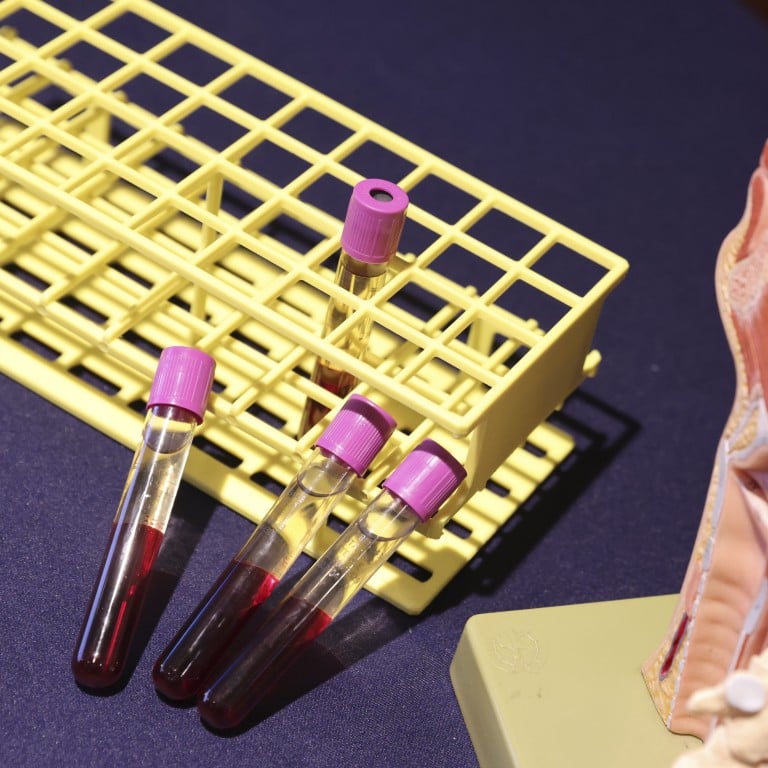
Blood test developed by Hong Kong researchers can detect nasopharyngeal cancer risk in asymptomatic patients, Chinese University says
- Study participants with persistently positive test results are 17 times more likely to get disease later in life, researchers say
- Findings show false positives subsequently diagnosed with cancer years later, they add
Professor Dennis Lo Yuk-Ming, director of the Li Ka Shing Institute of Health Sciences at the university, said there were two possibilities behind this result.

“It was possible that the false positive people were carrying the cancer virus, which gradually developed into cancer years later, or they were already at an extremely early stage of cancer which was not yet detectable by endoscopic examination or MRI,” he said.
The plasma screening test can detect the Epstein-Barr virus in the blood, which is closely associated with nasopharyngeal cancer, one of the most common cancers in the city, with about 700 new cases recorded every year.
Only 20 per cent of cases are detected early when the five-year survival rate is about 90 per cent. Most are discovered at a later stage when the chances of survival for the same time period drop below 70 per cent.
Antibody screening for the disease only has a positive predictive value of 5 per cent, while the university’s blood test has an accuracy rate of about 19 per cent.
As part of the study, the research team tested more than 20,000 asymptomatic middle-aged men from 2013 to 2016.
Among them, 309 received persistently positive results in the initial and follow-up tests, with 34 later diagnosed in endoscopic and MRI exams, out of which 70 per cent were in the early cancer stage.
Between 2017 and 2021, the team launched a second round of screening for 17,000 of the initial participants, among which 677 and 237 had transient and persistent positive results in the first stage, respectively, but were not diagnosed with cancer in endoscopic and MRI exams.
Twenty-four participants were diagnosed with cancer, out of which three displayed transient positive results in the first round, and four showed persistent positive results.
Professor Allen Chan Kwan-chee, from the university’s Chemical Pathology department, said the findings suggested a correlation between positive results and the risk of developing nasopharyngeal cancer later in life.
He said that participants with transient positive results were 4.4 times more likely to develop the disease, while those with persistent positive results were 17 times more likely to get cancer.
“The findings tell us that even if you get a positive result, but are not diagnosed with cancer immediately, you should not ignore the risk,” he said.
“We recommend them to conduct a cancer screening every one or two years, to facilitate early detection and increase the survival rate.”
Researchers would continue to monitor the 20,000 cases, he added.
But he said that the latest version of the screening was more costly and would only be available at private institutions for HK$2,000 (US$255).
As plasma-DNA-based tests are becoming increasingly common in detecting various kinds of cancer, Professor Lo said he believed a similar phenomenon involving false positives could be affecting other cancers as well, adding that more studies were needed.
The findings have been published in NEJM Evidence, a publication under the New England Journal of Medicine Group.

